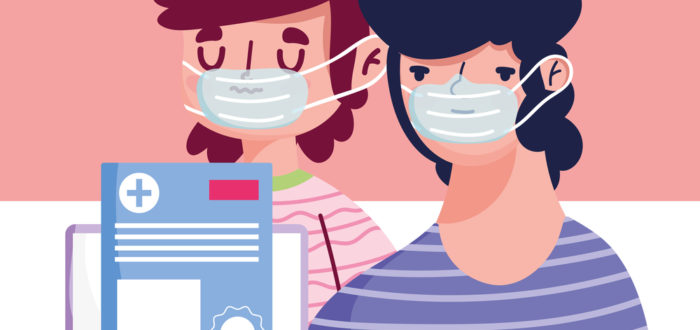Back-to-back updates on coronavirus continue as we mark one year with the pandemic in the US. As we learn more about the novel coronavirus known as COVID-19, our understanding of the impact it has on our health has increased significantly.
It’s fair to say that COVID-19 has touched everyone’s lives. And the impact is not localized to the United States. Around the world, millions of people have tested positive for the coronavirus. Unfortunately, many have lost their lives.
The Centers for Disease Control and Prevention (CDC) notes that people with COVID-19 have reported a wide-range of symptoms – and even none at all. Symptoms can range from very mild, to severe and potentially life-threatening. The most commonly reported symptoms, according to the CDC, include:
- Fever or chills
- Cough
- Shortness of breath or difficulty breathing
- Fatigue
- Muscle or body aches
- Headache
- New loss of taste or smell
- Sore throat
- Congestion or runny nose
- Nausea or vomiting
- Diarrhea
This list is by no means exhaustive. The CDC outlines that as our understanding of the virus grows, so does our understanding of symptoms. Concerns have recently been raised that the coronavirus may also cause neurological symptoms.
COVID-19 and Your Hearing – What’s the Connection?
In April of 2020, the JAMA Network published research where they aimed to answer the question: “What are neurologic manifestations of patients with coronavirus disease 2019?”
The study looked at 214 patients, who were diagnosed with the coronavirus in 2019. The research found that neurological symptoms were evident in 36.4% of patients. For patients who were severely ill with COVID-19, this increased to 45.5%.
Peripheral Neuropathy and Covid-19
So what does this mean? Put simply, it means that COVID-19 can cause something called “peripheral neuropathy.”
“Peripheral neuropathy refers to the conditions that result when nerves that carry messages to and from the brain and spinal cord from and to the rest of the body are damaged or diseased.” (Source)
It is the potential damage that can happen to our nerves that could put our hearing at risk. Our ears rely on a delicate system of blood vessels, nerves and cells to function properly. It involves sounds hitting our ears, and subsequently being translated into signals that our brains are able to interpret.
A hearing disorder of the inner ear.
This means that COVID-19 could potentially damage the nerves in our ears. When this happens, it is called auditory neuropathy. The National Institute on Deafness and Other Communication Disorders (NIDCD) defines auditory neuropathy as a “hearing disorder in which the inner ear successfully detects sound, but has a problem with sending sound from the ear to the brain.”
Investigations into the link between the coronavirus and hearing loss are ongoing.
Trust the Professionals at Hearing Balance & Speech Center
As our understanding of COVID-19 evolves, it’s important that we adhere to the advice of public health officials.
Please note that our office is taking careful precautions to prevent the spread of the virus and are following protocols. If you’d like to book in a hearing assessment, the hearing healthcare specialists at Hearing, Balance & Speech Center are here to help. If you’d like to book an appointment, please call us today on 203-774-5642 or request an appointment online.

